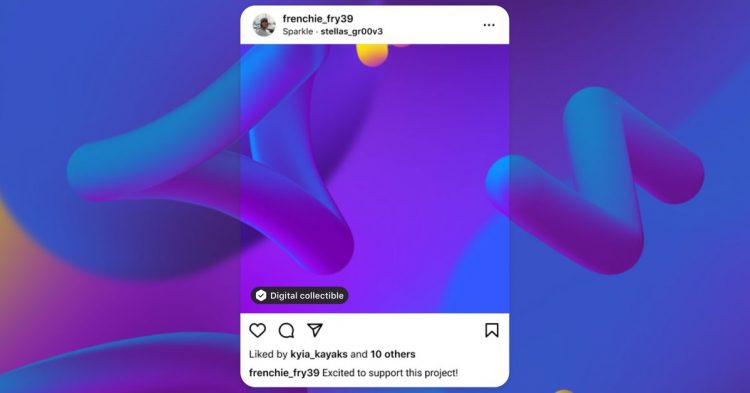Meta announced on Thursday that it’s giving everyone in the US the ability to share “digital collectibles” (read: NFTs under a new name that social media execs think is more appealing) on Facebook and Instagram. Sharing on the latter platform is also available in over 100 other countries. The feature, which was limited to select users at first, works by having you connect your crypto wallet to your profile, after which you can create a post featuring the NFTs in that wallet. According to a blog post from Meta, sharing a digital collectible results in “automatically tagging the creator and collector.”
Going to Settings > Digital Collectibles in the Instagram app, it shows that there are currently five wallets supported if you’re trying to use the feature on your phone, including Coinbase’s wallet, MetaMask, and Dapper. The app says you’re able to connect different wallets if you’re using the web version of Instagram on a desktop, but when I tried it, clicking on the Digital Collectibles button would just bring me back to my feed on the Instagram homepage.
I don’t suspect many people will be concerned about the details of sharing NFTs on Instagram or Facebook, though, and I’d bet the feature will be similar to that U2 album that invaded iPhones many years back: something you see while digging around and say “oh, yeah, that.” As Bloomberg pointed out earlier this week, NFT trading has dropped precipitously this year compared to its peak this summer. On the whole, both the number and value of NFT sales have been significantly lower this year than they were in 2021, according to data from NonFungible.com.
All this is despite attempts to try to get the general public to care about the digital tokens. Last month, as Meta started expanding access to this feature, Eminem and Snoop Dogg did a Bored Ape Yacht Club-themed performance at MTV’s VMAs. Since then, the average sales price, market cap, number of sales, and number of people trading NFTs in that collection have all dropped by double-digit percentages, according to data from DappRadar.
Source by www.theverge.com





























